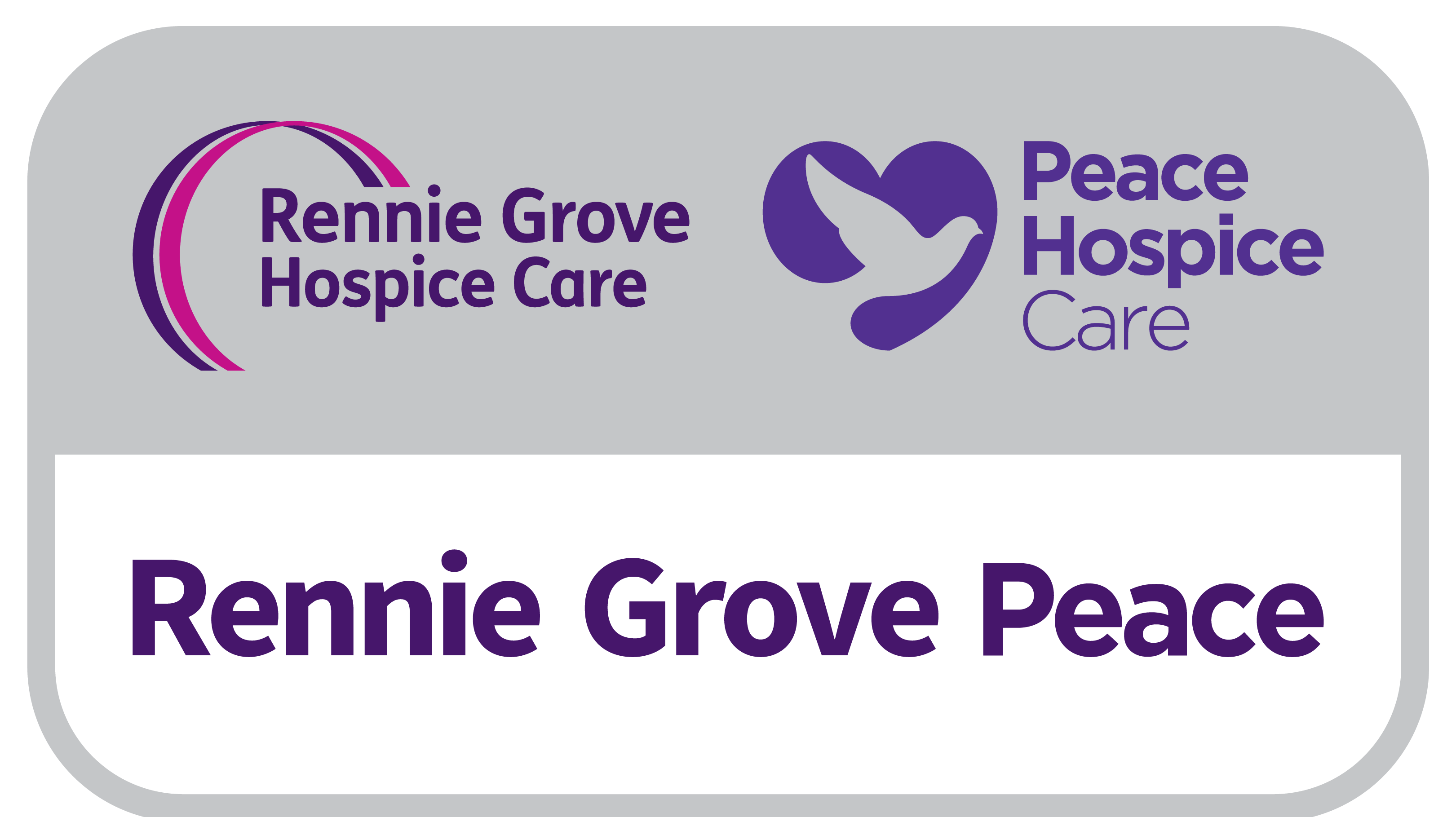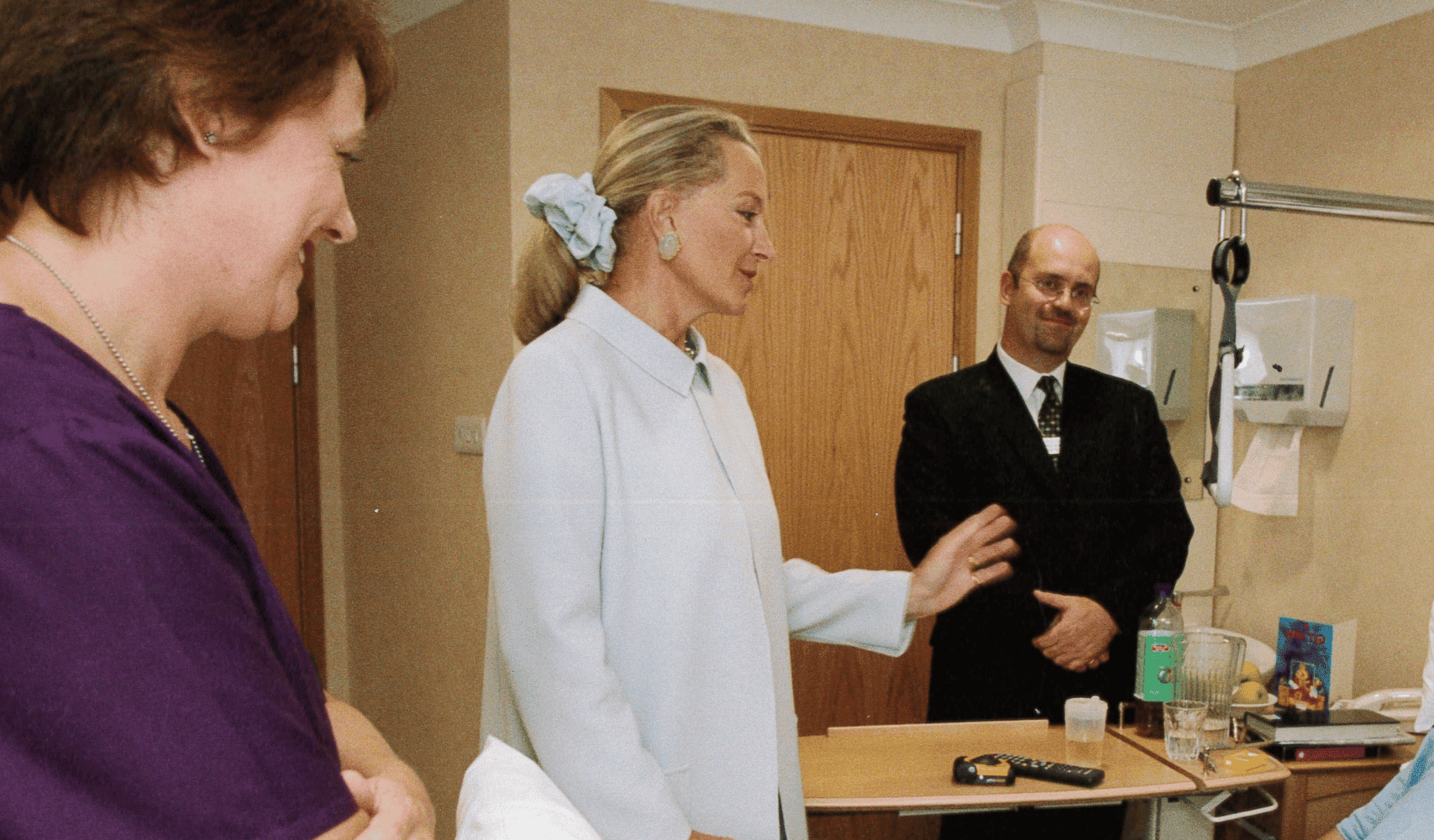“We were at the heart of the hospice at home movement. It was a completely untapped way of caring for patients and it felt like we were part of history in the making.” – Noel Ratcliffe
Noel Ratcliffe worked for Iain Rennie Hospice at Home from 1994 to 2000 as Director of Nursing, after which he moved to Peace Hospice Care to support the creation of the new Inpatient Unit, which opened later that year.
“I was 20 years old when I broke my neck playing rugby. It was a life-changing moment and completely changed my career path.”
Noel says: “I was 20 years old when I broke my neck playing rugby and was hospitalised for six months. It was a life-changing moment for me and completely changed my career path. The nurses who looked after me in hospital seemed to be getting something out of their job that I was missing, a fulfilment that I hadn’t experienced. I was training as a solicitor at the time and I realised how unhappy it was making me. When I left hospital, I started studying to be a nurse and qualified in 1984.
“I had been a qualified nurse for 10 years, but I became increasingly frustrated with the NHS and how slowly everything moved. As a result, I started doing a management degree in the evenings and it was there that I met Rowena Dean who was the current Chief Executive of Iain Rennie Hospice at Home. Rowena mentioned that they needed someone with my skills and shortly after in 1994 I started working there as a nurse team leader. Within a year I became Director of Nursing.
“At Iain Rennie Hospice at Home there were no limits, we did whatever the families needed us to do.”
“At Iain Rennie Hospice at Home there were no limits, we did whatever the families needed us to do. What we were providing was total family care, providing all the emotional and physical care that families needed, much of which I hadn’t been able to provide when I worked for the NHS.
“I loved the freedom that came with working for a charity. A great idea in the NHS will take four years to come to fruition, in the charity sector a good idea can be actioned the following week. Up to that point, Iain Rennie Hospice at Home had been completely nurse-led, which was inspirational. The nurses had benefited hugely from a lack of structure, but we were growing at such a fast rate that it was my job to put some structure around the nursing to make sure everyone was working within the regulation boundaries, whilst making sure the nurses had the freedom to do what they did best.
“It felt like we were part of history in the making.”
“In 1997 I set up the National Association for Hospice at Home and became the first Chair. We were at the heart of the Hospice at Home movement. At the time, it was a completely untapped way of caring for patients and it felt like we were part of history in the making.
“I remember walking around the Inpatient Unit just before it was opened and thinking how fantastic it was, it had such a homely feel.”
“I was at Iain Rennie Hospice at Home for six years and as a senior person I used to attend lots of meetings. At one of these meetings, I met Graham Ball, who was the Chief Executive of Peace Hospice Care at the time. At that point Peace Hospice Care was just a day hospice, but they had plans to build the Inpatient Unit. Graham asked if I would like to join them. It was an exciting proposition to be part of the team that was responsible for creating an Inpatient Unit from the ground up. After a successful interview I became Director of Nursing. It was an extremely exciting time, as my role was to develop the nursing team and all the infrastructure needed for the new inpatient services to function. I remember walking around the Inpatient Unit just before it was opened and thinking how fantastic it was, it had such a homely feel.
“One of the main challenges for the hospice sector is funding, as fundraising is very challenging right now. The silver lining is that charity shops are thriving at the moment, with more people looking for good value products and a more eco-friendly option. The other challenge the hospice sector faces is the UK’s ageing population which will put an immense strain on future hospice care.
“Hospice care is part of my blood now”
“It seems hospice care is part of my blood now, and I have become Chairman of Florence Nightingale Hospice. I still find the sector inspirational as it makes such a huge difference to the lives of so many people.”

